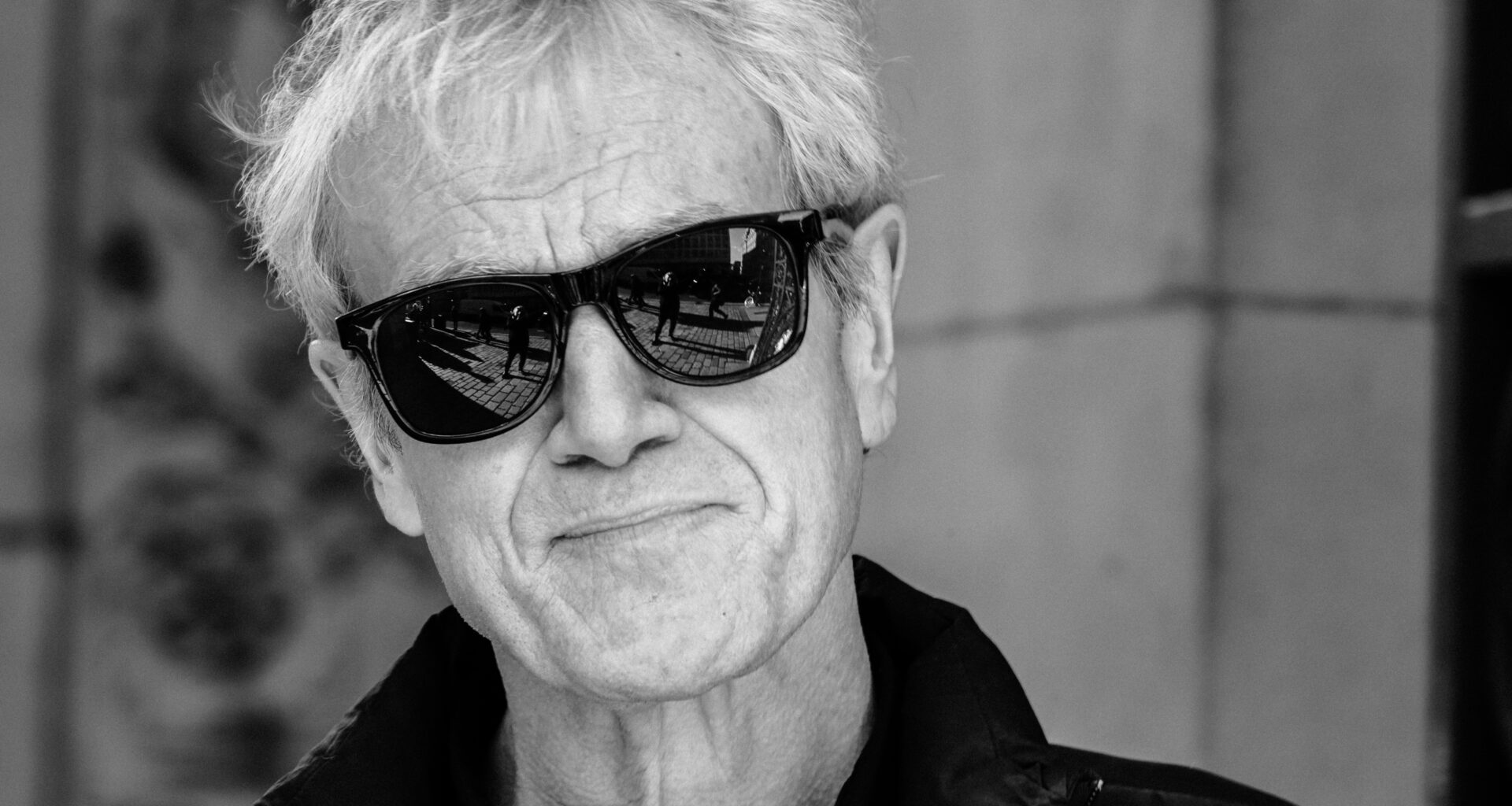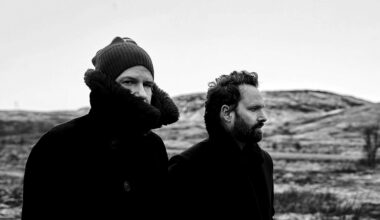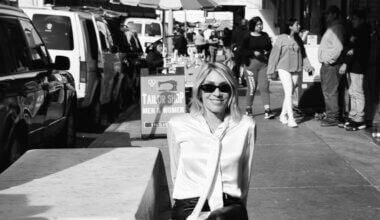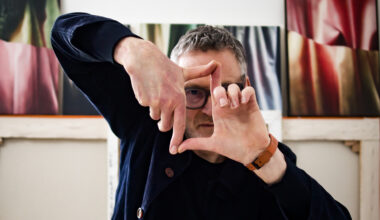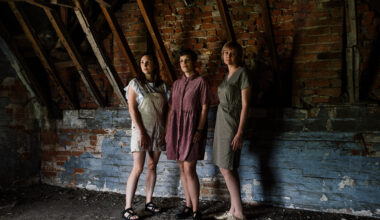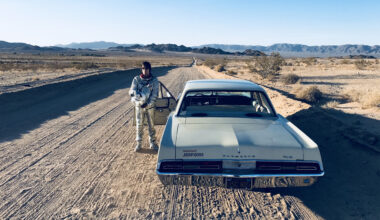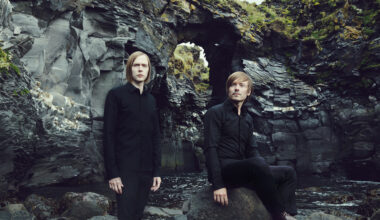Benge, Hannah Peel and Robin Simon talk about their collaborations with John Foxx on the album ‘Howl’.
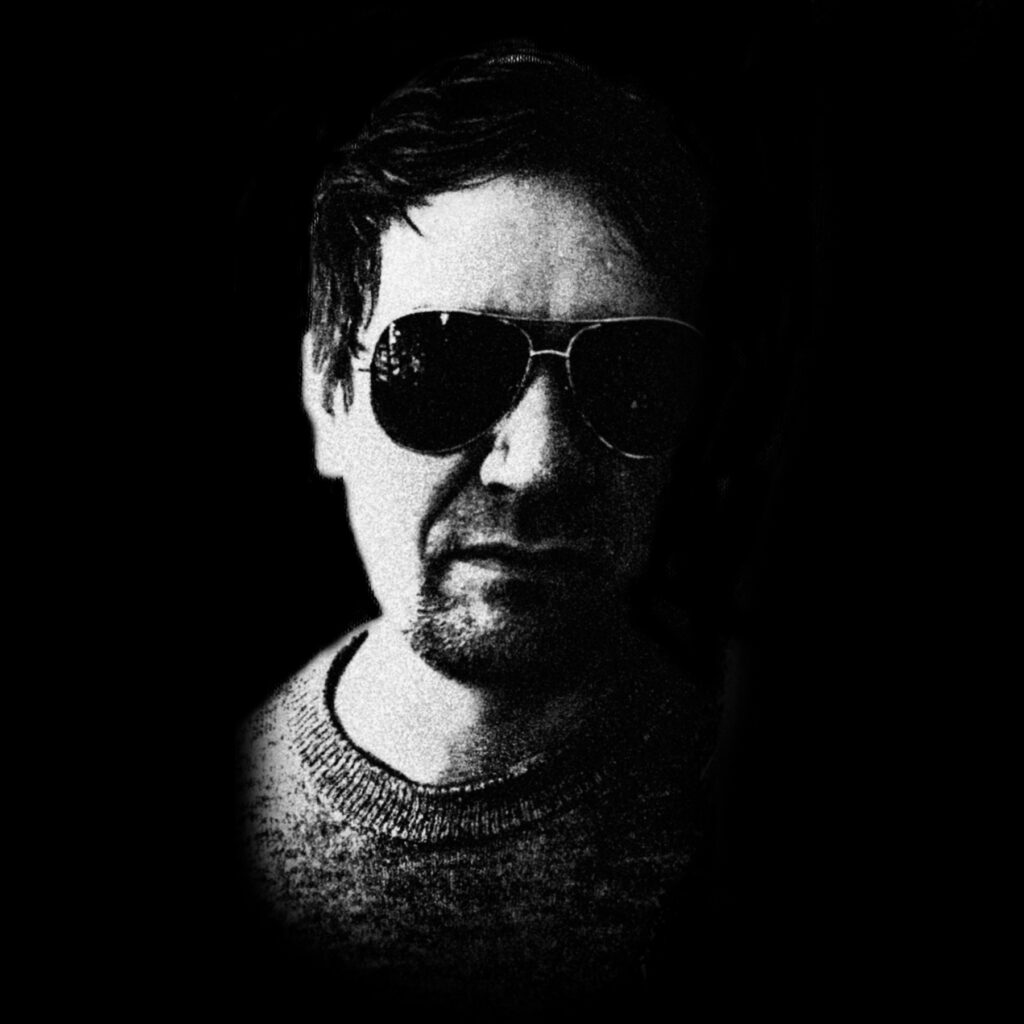
Benge
You’ve been working with John Foxx for a long time now. How did you first meet?
“It was through the BBC programme ‘Synth Britannia’. They knew my studio was full of vintage synthesisers and they wanted to use it as a backdrop to film the section with Gary Numan. I was chatting with Steve Malins, who was managing Numan then, and he mentioned that he also managed John Foxx. He said that John had been talking about doing a new album using analogue synths, but he’d got rid of all of his, as had Numan. Actually, everyone got rid
of their stuff – that’s how come I’ve got so
much of it!
“A few weeks later, John and I organised to meet up, but at the time I wasn’t sure where he was musically. I was thinking we could just get in the studio and do something really experimental and electronic without too much tune to it, and I think he wanted to do something like that too. So we got together to try out a few things and that’s how it all started. It didn’t end up being experimental, though. The early tracks we did together were actually quite pop. It was brilliant for me, because I was a huge John Foxx fan when I was first getting into music.”
So once you started working together, you became John Foxx And The Maths?
“Yeah. I’d never worked with any vocalists until that point. I’d just done my ’Twenty Systems’ album and I think John had heard that. He kind of thought we would do something like ‘Twenty Systems’, but with him adding bits to it. In fact, if you think about that record, there is quite a lot of melodic stuff on there, and when you add in John’s vocals it starts to become what we turned into, I suppose. It could have gone either way, really.”
It was just the two of you on the first John Foxx And The Maths album, wasn’t it?
“Yes, but we wanted to put a band together to tour it, so we got other musicians involved for that purpose. I had a working relationship with Hannah Peel, because she was starting to use my studio. I sub-let part of the studio to her, so she was around a lot, and then she joined the live band on violin. We also had Serafina Steer playing bass. The second album had a bit more Hannah on it, then we did a live-in-the-studio album, and from then on Hannah would be called in if it suited the track. We did a couple of quite big showcase gigs with John, including one at the Roundhouse, which was a retrospective of his whole career, and that was when Robin Simon first got involved with us. We did a section of the show where we played a lot of early Ultravox stuff and Robin came on halfway through and joined the band. But while I had played live with Robin, this new album was the first time that I got to work with him in the studio.”
How is the work split between you and John?
“We work the music side together, or I’ll come up with backing tracks of sequences and drums maybe, and then John will bring vocals along to it. Some of the tracks on ‘Howl’ were guitar riffs that John had and we worked on them together, getting them into rough structural shapes, and then Robin would come in when the songs had got to that stage and add guitar. Once the songs were quite well developed, Hannah added bits, and then John and I mixed and produced it.”
The sound on ‘Howl’ is really manipulated, with the voice and the guitar melting into synths. I wasn’t listening out for violin, but I couldn’t name a track that’s got violin on it.
“We deliberately blended the sounds. A lot of things are going to be not what you’d expect. What we wanted to do was to push every sound, to make it as extreme as we could and get that energy level going. That was something John was especially keen on. He wanted to get the energy levels up.”
I revisited ‘Systems Of Romance’ to listen to Robin’s guitar playing. You can hear the same guitarist, but the sound is much more subtle, whereas this album roars out at you like a muscle car. There’s nothing polite about the mix, is there?
“No. John was pushing for that on this one, which was very exciting. He came in on this album wanting to push it. It feeds through every part of the album, including the lyrics. They’ve got that edge to them. We wanted it edgy.”
The idea of highlighting the guitar and bringing it back into electronic music seems to have been integral to this album’s development.
“I know that John wanted to work with Robin again. He worked with him after he’d left Ultravox, on his album ‘The Garden’, for example. John loves the way he plays – he’s his biggest fan basically. What he was doing with the guitar back in the late 1970s turned into a whole genre of music. Like with The Edge and those very melodic, delayed guitar parts, that’s what Robin invented pretty much. This record is like John and Robin have gone back in time to 1977 and kind of carried on from there, which is an interesting idea. There’s been such a long gap between doing that originally and now, and technology has moved
on a lot. But in a way, the raw essence of what Robin was doing back then is exactly the same
on this record.”
It sounds like ‘Systems Of Romance’ amped up and spliced with the icy electronics of ‘Metamatic’. Was that what you were after?
“That was John’s initial idea. He wanted to explore that right from the beginning. He’d actually written a few rough ideas with it in mind. I think I’m right in saying that he had some songs knocking about for years that weren’t suitable for other things he’d been doing. He thought, ‘This is the time, so let’s do it’.”
How long did it take to make ‘Howl’?
“Well, John first came down here to my studio four years ago. We had a long break in between for various reasons, then he came back 18 months ago and we started again. Well, not really started again, we had six or seven rough ideas from that first session, but we revamped them. Robin first came down here about 18 months ago too, which is when we realised it was going to work. Robin came back a couple of times after that to finish off the tracks in terms of what he’d done for the guitar. After that, it was just me and John getting it into shape. It was almost like sculpting, the way a sculptor would attack a massive piece of rock with a chisel. We were chiselling away at it until we found what we wanted inside.”
Do you have any favourite tracks?
“That’s difficult. I think it’s a really good body of work. We wanted to keep it fairly short and sweet, so it’s not a long album. Actually, I think my favourite is ‘Strange Beauty’. I love big ballads, I love emotional tracks.”
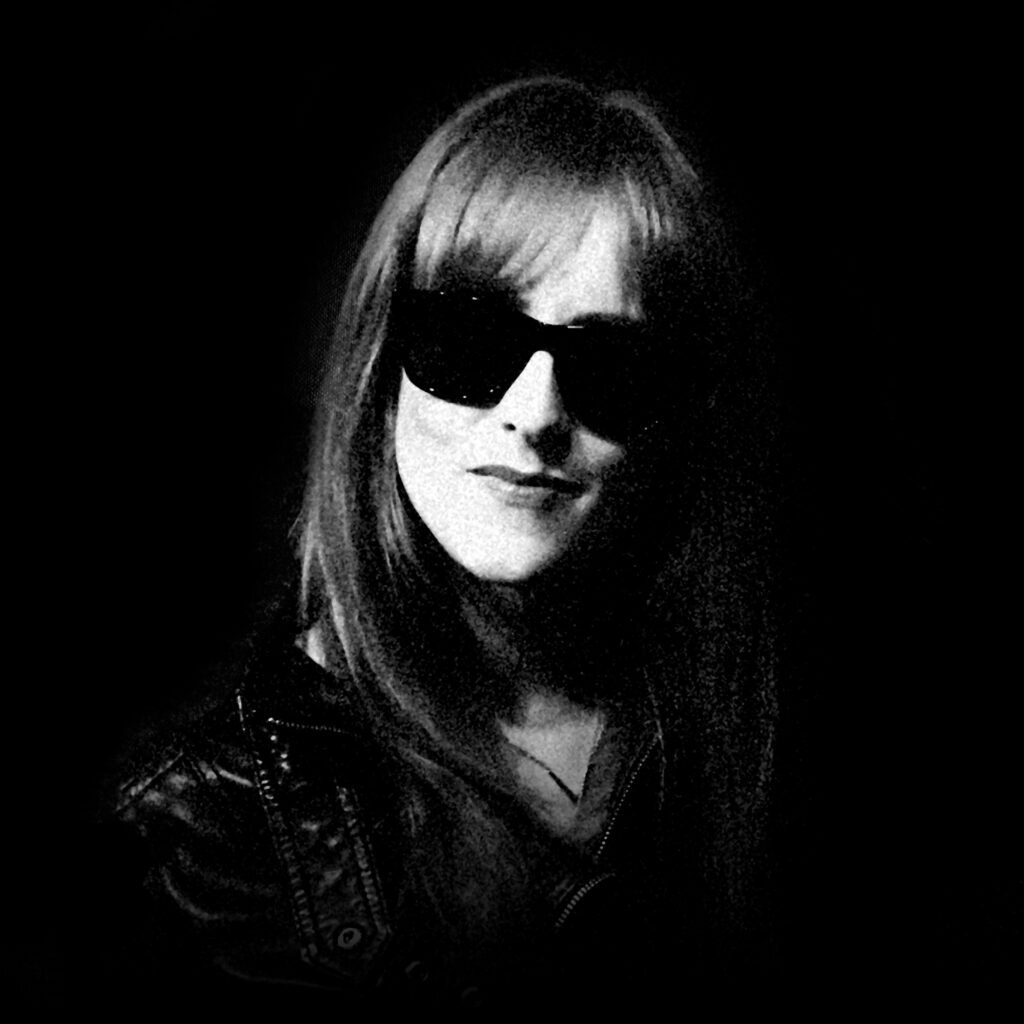
Hannah Peel
When and how did you start working with John Foxx?
“It was the summer of 2010 in London. I was recording my first record next door to John and Benge as they were making the first Maths album. Every so often, this very dapper gent would pass through the back of our studio to get to the kitchen. He would always smile and say hello… and this went on for weeks! I’d done a bit of collaborating at this point with OMD up in Liverpool, where I was living at the time, so when I saw Benge’s studio I really wanted to be in there and find out what was going on with all
that magical gear.
“Coincidently, around the same time that I met John and Benge, I’d been reading about John and about Matt Johnson’s infamous studio The Garden, which was around the corner from us all in London. Apart from the sounds floating from the studio next door, I hadn’t heard John’s solo music before. A little later, they said they were planning a tour and they were looking for a violinist who didn’t mind going through tons of effects, so we started playing together for the Iive shows. I think that must have been early 2011.
“I’ve never really looked back since that time, to be honest. I was young enough to still be like a sponge for influences and John pushed me to do a lot for the live shows. Multi-tasking synths, backing vocals, noisy distorted violin… I had to learn very fast how to find my way around lots of different synths and how to get certain sounds to match the records. Serafina Steer was in the band then too. It was all a lot of fun. The music was incredible to play and the skills I learned were my grounding for every little thing I’ve done so far today, even down to honing and perfecting sounds. Spending time getting the right setting is worth it. I’m not sure what path I’d be on now without John Foxx.”
What are your abiding memories of your 10-year association with John Foxx And The Maths?
“So many! Lots of stories, but right the way through it, John has had incredible stamina. I remember that mostly from our live shows – the focus and passion for every performance. Also travelling with old analogue synths and dealing with their nuances. Finding fast or alternative solutions around playing things that can break easily. One outdoor show in Italy was so hot that everything just kept detuning. It even felt like the glue on my violin was melting. The most memorable show was in Poland, at the Unsound Festival in Kraków.
We played with Chris & Cosey in an old tram shed that had been turned into a museum. The gig was full of tech problems, but the crowd was buzzing. We also got to see Morton Subotnick play live in an IMAX cinema, which was mind-blowing.”
John Foxx And The Maths used to be based around Benge’s studio in Hoxton, but you and Ben have both left London now. Has that affected the working relationship?
“No, not really, it’s just harder to find time to meet. Hoxton is very different now to how it was then, but Benge left five years ago so we’ve all adapted. I used to work next door to Benge before he left and it was always fun popping in to lay down a vocal or a part, and to meet everyone coming and going. I do miss that side of things. It’s great the studio is still there though, working away under Erland Cooper.”
What was your main involvement with ‘Howl’?
“LOTS of noisy violin. It’s a beast with its own wild mind. We nicknamed it ‘Violence’ on the first tour. When we put it through old guitar pedals, it would take off with feedback and growls without being touched! I’m spiriting John Cale and The Velvet Underground into everything I do with The Maths. John loves that idea too. It seems to be the only time I get to let loose and let the sound rip all that stands in its way.”
Which tracks did you play on?
“I played on seven of the eight tracks on the album. Everything except for ‘My Ghost’.”
It’s hard to discern the specific sound of a violin on ‘Howl’ because it’s been treated so heavily. Can you tell us something about your approach to sound and how you like to mess with the sound of the violin?
“Chaos. Letting the depth yell and splinter, only to try and rein it back in before it is unleashed again. Distortion and octave generator pedals like a POG, with chorus and tons of delay and reverbs integrated into the rest of the instruments, so you’re not sure where one instrument begins and another ends. Music like this doesn’t suit an acoustic violin or other acoustic instruments.
It doesn’t work and it makes me cringe when I hear it. It’s all about making it feel like one mighty force of nature for this record. Rich and infectious melody lines too. Through the noise, there is beauty. The lines that John asks me to play are always tinged with romance, but you can’t often hear that. That’s the bit I enjoy with sound – the discovery, the exploration that you might not find on a first listen. Listen again, and you’ll hear the richness belting through.”
The album has a punk energy and rage about it. Do you relate to that? What’s making you howl at the moment?
“Yes, very much. There is too much to howl at right now! Even more so since moving back to Northern Ireland and seeing the economic disparity between a bubble like London and a place where people and nature are ignored or forgotten. I had a wake-up call coming here and finding a country with such high suicide rates. It’s out of control and it’s rising, yet it goes unnoticed outside of here, with little support to help improve the situation. There’s so much news, everywhere, all the time, we have hit peak negative information. Things that really matter are losing impact. I can’t stand the growing selfishness that our society lives in right now.”
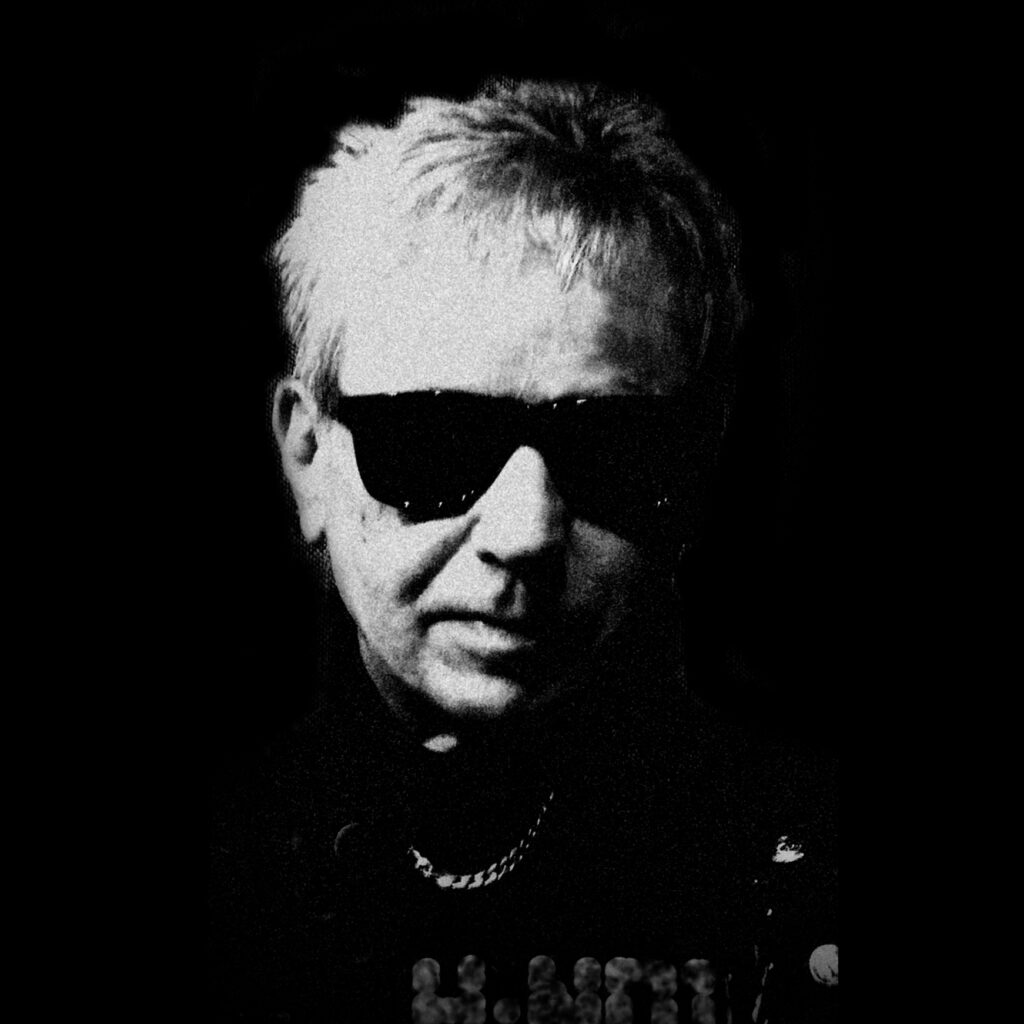
Robin Simon
How did you first meet John Foxx?
“Well, I knew Billy Currie from Ultravox because I’m from Halifax in Yorkshire and Billy’s from the next town, Huddersfield, which had a music school and was more of an established town. So I met Billy early on. He knew my brother and I met him when I was 12 or 13, I think, just when I first tried picking up the guitar actually. He came to the church hall to play in a tentative band with my brother and his friend. They didn’t form a group properly and obviously I was only a kid, but this was my first encounter with making music and I got to play a little too.
“As time went on, I hooked up with some other musicians locally and eventually, when I was 19, I got the chance to come down to London with a band. It wasn’t a serious thing and nothing happened with it, but it brought me down to London. One night, I met Billy Currie in a pub. Just by chance, he was in that area. After that, the new wave group I was in supported Ultravox quite a bit, but I didn’t talk to John Foxx much. I kept in touch with Billy though, and later on he asked me if I wanted to try out for Ultravox.”
So your first proper interaction with John was auditioning for Ultravox?
“I didn’t really do an audition. I mean, they’d heard of me and I’d supported them in this new wave group. They were having trouble with their guitarist and it was kind of like, ‘Well, they’ve got a record deal’, and the band I was in was falling apart. So I thought, ‘Yeah, OK then’. Why would I say no to them, you know? John was the leader of the band and he said, ‘OK, we’ll give you a chance’. So they took a chance on me.”
And fairly soon after that you were off to Germany to make the ‘Systems Of Romance’ album, is that right?
“Ultravox were doing lots of touring there, because they seemed to be more popular in Germany than anywhere else. They used to get quite a reaction from the crowd. Especially once they had done ‘Systems’.”
John has said that he always felt bad that you joined the band and then he left.
“I’ve been thinking about that. It was difficult, because I wasn’t an original member. Ultravox were my favourite group at that time probably and they were sort of an ideal band, but everything was happening very fast. It was like a bit of a last stand. I think we thought, ‘Oh well, the record company’s gonna get rid of us’. They were threatening it unless we sold more records. But that didn’t necessarily affect the band that much. The pressure to get some commercial success had come into it, but it certainly wasn’t worrying John Foxx. He was just doing what he wanted to do.”
A couple of months after John left the band, you decided to go as well.
“Yeah. I thought that it was a good group and it would keep going. There was never any sort of conversation along the lines of, ‘Right, we’re splitting up now’. John drifted away from it because he seemed to have done what he could do. I didn’t leave straight away with him. I hung around for a bit. I lived near the Island Records office, so I’d go down there and see what was going on, but the band had gone into limbo. I couldn’t get my head around the fact that they didn’t think anything of just going out and getting another singer. I didn’t quite relate to what they were doing.”
So you joined Magazine, but not for long…
“At the time, I was always thinking about them. I thought that if I could be in another group, it would be Magazine. It was a dream what happened. I was only in the band for about six months – some people say it was longer, but I don’t think so – and I actually used John McGeoch’s gear as he’d left it behind! It was hard to duplicate his parts and it was all going too fast for me, because they were in that mode. They came back off the tour I did with them saying, ‘Right, we’re making an album now’, and I said, ‘What?!’.
“They were in a similar situation to Ultravox, with pressure from the record company to get more commercial, and I thought that surely the thing to do was wait. Why play along with that? I wanted them to step back, to take some time and release an album much later on. But they didn’t seem to like that plan. Particularly as I wanted to play on John Foxx’s ‘The Garden’ album. So when they kept saying they wanted to go in and do their album, I thought, ‘Well, I’m more into John Foxx and Ultravox than this’. That kind of thing happens.”
Have you had time to give ‘Howl’ a good listen?
“No. I don’t tend to do that. I do a thing… and then I don’t really know what happens with it afterwards.”
It seems to recall the period we’ve been talking about, that post-punk era where guitars and electronics came together.
“Yeah, it was like going back to that with this album. There was a bit of déjà vu about it. John had been playing piano and sometimes it reminded me of doing ‘Systems Of Romance’. The thing about ‘Systems’ was the combination of electric guitars and drum machines. Back then, a lot of people saw the guitar as an old instrument, but it’s not like that now. Once you put it through a load of effects, it’s like a synthesiser – it becomes electronic. I wouldn’t want to play a synthesiser guitar and it be a synthesiser. It’s about keeping the identity of the guitar but, like we tried to do back then, making it like a synth in the varying sounds you might get out of it.”
Comparing ‘Howl’ with ‘Systems Of Romance’, you can hear the same person is playing guitar, but the mix on ‘Systems’ is quite subtle, the guitar more embedded in the mix, whereas on ‘Howl’ it’s been completely unleashed, it’s got a spotlight on it. Did you know that was the plan?
“Not necessarily. Now, of course, we’re a bit different from Ultravox, where I did all the guitar. Some of it was what John had written. He’s got quite an electronic guitar sound himself – the rhythm style – but obviously he’s not really known for guitar, is he? The aesthetic with the guitar for John is to avoid clichés, though another factor is the way of playing the instrument. Take Wilko Johnson, for instance. His style may seem standard, but because of something intangible, the way he plays sounds different. The Edge and Charlie Burchill from Simple Minds also have this kind of an individual aesthetic. John has always been a guitarist, it’s just that electronic music became his thing. With this album now, I’d say he’s gone back to his more all-round self.”
‘Howl’ is released by Metamatic
